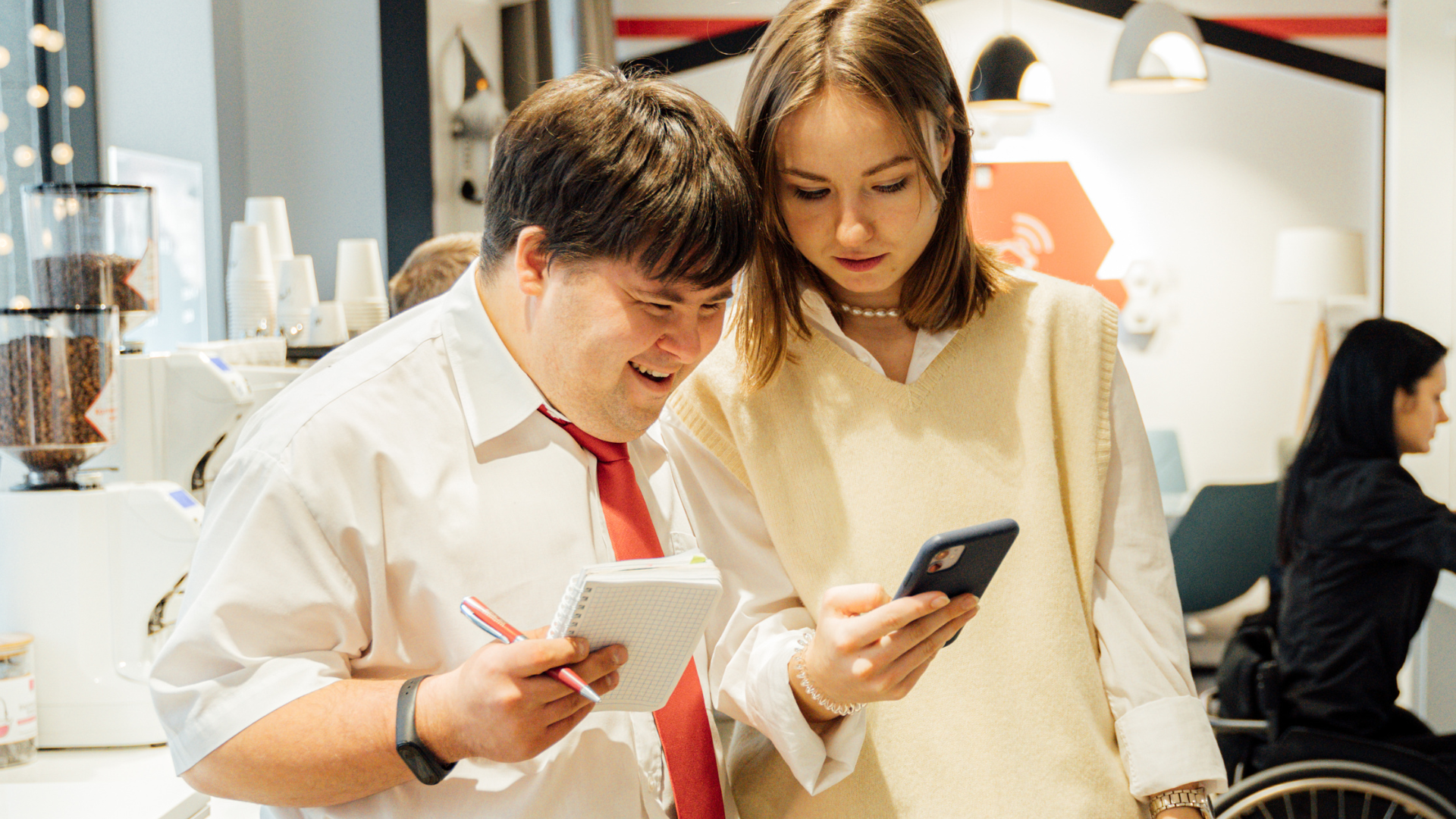Disability and Caregiving
We can help you to…
…create an organisational culture in which personal characteristics and fragilities are welcomed and valued
For many companies, dealing specifically with people with disabilities and caregivers may be new. However, it is a fundamental task, possible today with the help of effective tools in the context of ‘plural management’.
Previous area
Gender
🡐
🡒

We support organisations in developing a more inclusive work environment for all people, including through projects in the field of disability (visible and “invisible”) or caregiving.
Some examples of activities:
- Raising awareness and training among the corporate population, managers and HR to develop more respectful work environments
- Review of HR and organisational processes for better inclusion and support of people with disabilities
- Training for more aware recruiting
- Empowerment and balance of skills of people with disabilities
- Qualitative and quantitative research to understand the organisation’s current status
- Consulting to develop a disability strategy
- Specific courses dedicated to caregivers to reconcile identities and better experience the role of care
Another tool available to companies is the Disability Lab, the network born from the research that Wise Growth conducted in 2019: “Disability and work through the narratives of the protagonists”. The Disability Lab (or D-Lab) is aimed at organisations that want to discuss best practices and issues of disability and caregiving in the world of work; it consists of three annual inter-company meetings during which you can share experiences and initiatives.
— FOCUS
Case study
Training and listening groups
Wise Growth has helped a large Italian bank to transform the need to listen to their people with disabilities into a formalised “Listening-Training” programme. In this initiative, training becomes not the “introduction of solutions” but a mediation tool between the organisation and their people. It is configured as a listening space structured in order to bring out experiences, needs, desires but also possible solutions to work more effectively. In this process, the presence of people management in some groups was invaluable, as they were able to listen to the stories, worlds and experiences of their own people with disabilities and understand their needs and difficulties within an organisation.